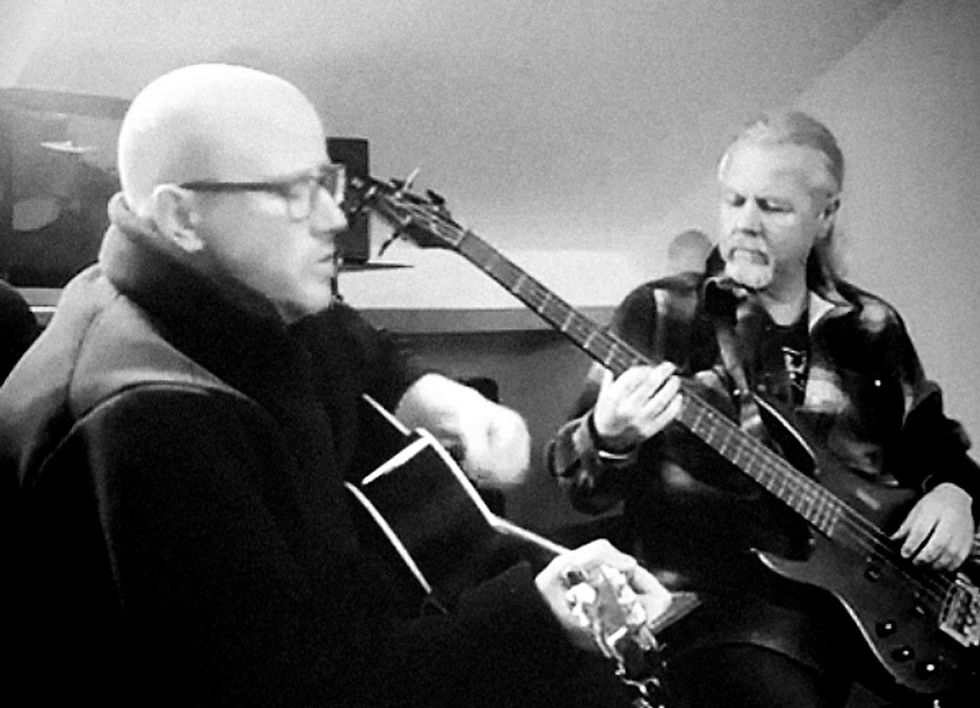Solidarity with the oppressed comes from lived experience
- Phil MacGiolla Bháin

- May 28, 2025
- 3 min read

IN THIS month of May here at home, we take a moment to reflect and remember the catastrophic events that shaped the Irish wherever they first saw the light of day. This year’s National Famine Commemoration took place in Kilmallock, Limerick, on Saturday, May 17. It was the first time that the State commemoration has been held in Limerick.
It is fitting that this event moves around the country. Two years ago, it was here in Dún na nGall when Uachtarán na hÉireann, Michael D Higgins, officiated at the event in Milford on Sunday, May 21. I witnessed the head of state's oration.
“National Famine Commemoration Day is an opportunity for all of us to reflect on and recall the lives, the suffering and the loss of that tragic event imposed on Irish people, which we call An Gorta Mór, the Great Hunger, the Irish Famine,” he said. “This year’s setting at the old site of the Milford workhouse is so appropriate given the adversity endured by the people of Donegal in the face of poverty, hunger and emigration throughout the 19th century and in particular during the Great Hunger.
“The legacy of An Gorta Mór is complex, deep, wide, has many strands that have impacted on the Irish collective psyche as well as at the individual level. Its legacy is one of involuntary emigration, cultural loss, demoralisation and loss of confidence, both in terms of population and in terms of its impact on the Irish language and the marks this would have on the country, and in particular on Irish society.
“Given this foundational part of our near historical experience, it is easy to understand how the continuing issues of food security and food sovereignty in our contemporary world resonate profoundly with us as a people and must feature in our ethical reflections and our responses as we commemorate the period of An Gorta Mór.
“The strong commitment of the Irish people to humanitarian aid and relief is, of course, strongly related to our own past struggle with hunger, engrained in our collective memory. It is an example of the Irishness we wish to be known by, one grounded in decency, in ethical principles, taking our share of global responsibility.
“We have a moral and ethical responsibility to support our global family in dire need, to help with sustainable solutions to ending all famines, wherever they occur on our shared, vulnerable planet, and to provide a decisive response to climate change, which itself is leading to an increased incidence of famines globally.
“The parallels with An Gorta Mór and the mass displacement it caused 175 years ago must not be lost on us. We have a moral duty to continue to honour our commitments to those vulnerable and displaced who seek asylum and refuge on our shores.”
Past trauma needs to be unearthed and scrutinised in the fresh sunlight of a new generation. That is why a current project in Béal Feirste is to be welcomed and applauded.
The unmarked graves of thousands of people who died during An Gorta Mór in that city are finally set to be officially marked. Belfast City Council plans to recognise the burial ground close to the City Hospital on the Donegall Road.
At least 10,000 bodies were buried at the cemetery, which opened in the late 1840s before closing in the early 1900s. Even the self-hating revisionists in academia and the media here are largely silent when it comes to the role of our colonial masters in the Irish holocaust.
Many of those same individuals are strongly pro-Israel. They are publicly anguished and embarrassed at the heartfelt solidarity people on this island have for the plight of the starving in Gaza.
As I write this, an enforced starvation is being used to break the spirit of an occupied people. The strength of feeling towards the Palestinian people has forced the Israeli State to give up on any attempt at a diplomatic charm offensive.
In January of this year, the Israeli Ambassador to Ireland, Dana Erlich, said the embassy would remain closed. Erlich said in an RTÉ interview that Ireland was ‘stuck in an echo chamber’ regarding the conduct of the IDF in Gaza and the West Bank. Her point was that we Irish just don’t get it.
Actually, Madam Ambassador, because of our history, we DO get it. No one who assembled at Kilmallock on May 17 of this month thinks it was a natural disaster. It was by the hand of men far away in London.
Phil Mac Giolla Bháin is an author, playwright and journalist based in Donegal. He was a staff reporter and columnist on An Phoblacht for many years. His novel Native Shore, a political thriller with a strong Glasgow Irish theme, is available at Calton Books







Comments